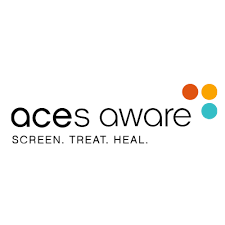An acronym that has been used by healthcare professionals for decades has recently become a common term for educators who are observing an uptick in student stress, anxiety and other extreme barriers to learning.
ACEs, or adverse childhood experiences, are potentially traumatic events that occur in children before age 18. ACEs can include physical and emotional abuse, neglect, substance abuse, caregiver mental illness and household violence.
In partnership with CHOC Children’s and the American Academy of Pediatrics Orange County, OCDE was recently named the recipient of an ACEs Aware grant designed to help inform and educate local communities about the importance of screening for ACEs and responding with trauma-informed care.
The ACEs Aware initiative is led by the Office of the California Surgeon General and the Department of Health Care Services to provide training, clinical protocols and screening for children and adults. That’s critical, because along with negatively impacting education, ACEs are linked with chronic health problems, mental illness and substance misuse in adulthood. But experts say with proper screening, training and care, ACEs can be managed and, in some cases, even prevented.
As part of the ACEs Aware grant, OCDE and its community partners are taking a closer look at childhood trauma, how it impacts a child’s education, and how addressing it early can impact life opportunities that resonate across generations.
Here are five facts you should know about ACEs.
ACEs are common and affect all communities.
According to the CDC, about 61 percent of adults surveyed across 25 states reported experiencing at least one type of ACE, and nearly 1 in 6 reported experiencing four or more types of ACEs.
The original study on ACEs conducted by the CDC and Kaiser Permanente in the mid-1990s discovered that ACEs can affect anybody, anywhere. Children experiencing adverse situations, and adults who experienced adversity when they were children, come from all walks of life. ACEs are not confined to any particular race, religion, socio-economic background or nationality. Any child can experience the sustained toxic stress associated with untreated trauma and suffer negative mental and physical health effects.
Trauma directly impacts learning and behavior.
“We tend to think of trauma as the result of a frightening and upsetting event, but many children experience trauma through ACEs such as abuse, neglect, homelessness, domestic violence or violence in their communities,” says Pamela Kahn, OCDE health services coordinator.

“You don’t have to rely on research to see that it’s clear that chronic trauma can cause serious problems with learning and behavior,” Kahn says.
Across Orange County, teachers, school administrators, parents and others within and beyond the education sector are teaming up to create healthy and supportive school environments that promote the academic success of all students. Districts across Orange County are applying trauma-informed practices to help make students feel safe, connected and ready to learn.
But what are trauma-informed practices?
Kahn explains that in a trauma-informed school, the adults in the school community are prepared to recognize and respond to those who have been impacted by traumatic stress. Those adults include administrators, teachers, staff and parents. In addition, students are provided with clear expectations and communication strategies to guide them through stressful situations.
“The goal is to not only provide tools to cope with extreme situations, but to create an underlying culture of respect and support,” says Kahn.
The damage is reversible.
While ACEs have the potential to be long-lasting, they don’t have to be. Tools are available to help children thrive in the face of adversity and go on to meet their full potential.
Kahn says there are proven simple steps that can be taken to “reboot” the brain, creating new neural pathways that promote healing. Creating safe, stable, nurturing relationships and environments are critical to lessen and prevent the consequences of childhood adversity.
Prevention is possible.
Protective factors are conditions or attributes — like resilience or a supportive environment — that reduce the risk of ACEs and promote healthy development and well-being. They can be found in individuals, families and communities.
Raising awareness through programs like ACEs Aware can help. Additionally, the CDC has produced a resource, Preventing Adverse Childhood Experiences: Leveraging the Best Available Evidence, to help empower communities with the best evidence-based strategies for preventing ACEs.
Educators can help and resilience is important.
In a recent interview with Eduoptia, California’s Surgeon General Dr. Nadine Burke Harris said for children with ACEs, the damage is reversible, and teachers can help. But they can’t do it alone.
“We all have to play our positions,” Harris said. “The role of educators is in delivering that daily dose of buffering care that’s so important for healing.”
Studies have shown that for teachers who are directly exposed to a large number of young people with trauma, a secondary type of trauma known as vicarious trauma is a big risk. While many teachers often say they don’t have time for self-care, experts insist it’s necessary to develop long-term self-care practices to build up overall well-being and resilience.
OCDE has an entire team dedicated to teaching social and emotional learning skills to students and teachers. The Learning Supports Unit includes two teams that provide professional development, consultation and technical assistance for district leaders and school staff focusing on the whole child. A key focus is the Multi-tiered System of Support framework, or MTSS, designed to provide core supports for all students, additional assistance for some, and targeted interventions for those with the greatest needs.
This is the latest in a series of ACEs-related stories from the OCDE Newsroom. If you have a story or resources you’d like to share, please email us at communications@ocde.us.
